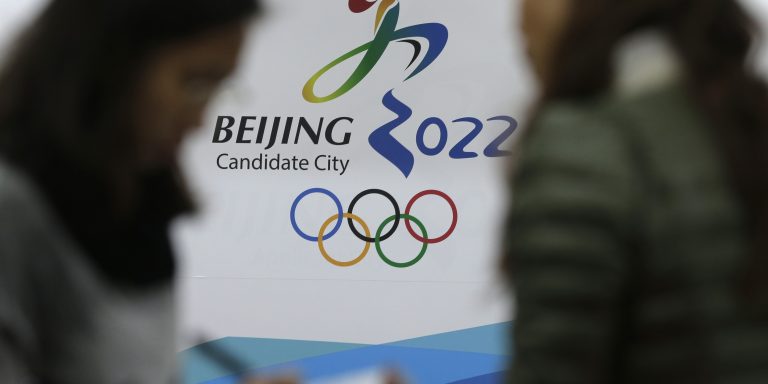INTELBRIEF
April 2, 2021
IntelBrief: Boycotting Beijing? The Olympic Games and Protesting Uighur Genocide

Bottom Line Up Front
- The conversation about whether the United States should boycott the 2022 Olympic Games in Beijing, China is growing in intensity.
- The Chinese Communist Party (CCP) remains hyper sensitive to even a modicum of public criticism about what it considers “internal issues.”
- Done properly, an Olympic boycott would need to be tied to broader strategic objectives related to improving human rights dynamics in China.
- Consequently, officials in the Biden administration are likely debating whether a boycott would deliver tangible change.
In 1980, in the midst of the Cold War, the United States boycotted the Moscow Summer Olympics. The Carter administration’s decision was in protest over the Soviet Union’s invasion of Afghanistan. Four years later, the Soviets responded in kind, boycotting the 1984 Los Angeles Summer Olympics. Other than significantly increasing the medal count for the host nation, the boycotts had little tangible impact. Nevertheless, the symbolic nature of Washigton’s decision was palpable—it demonstrated to the world that the United States truly cared about human rights and correctly recognized that sports diplomacy was one way to highlight the importance of this issue. The very reasons that the Games resonate throughout the world, and their emphasis on inclusivity, excellence, and highlighting the best of the human spirit, are the same reasons that they should not be used as a means to whitewash human rights abuses.
The conversation about whether the United States should boycott the 2022 Olympic Games in Beijing, China is growing in intensity. The protest would be one way that the U.S. could emphasize its commitment to stand with ethnic Uighurs in China, who are facing a genocide at the hands of the Chinese Communist Party (CCP), as well as other minorities living under repression. China has denied its crimes against the Uighurs, incredulously suggesting that the detention centers are merely “reeducation camps,” and that their measures are in line with international efforts to prevent and counter terrorism and violent extremism. But the reality is far more nefarious. The BBC recently reported on allegations of torture and systematic sexual violence against Uighurs, noting that China is taking measures to prevent women from giving birth, including forced sterilization and abortion. Uighur children are reportedly being sent away from their communities.
The 2022 Winter Olympics, to be held in Beijing, will be the second Games held in China; the Summer Olympics in 2008 were also held there, with no boycotts or large scale disruptions. There was pressure then over China’s human rightsrecord, and then, as now, China’s leadership remained hyper sensitive to even a modicum of public criticism. Beijing fiercely guards its sovereignty and perceives critiques of its domestic policy as meddling in its “internal affairs.” This time, there is a growing list of human rights organizations, and some voices in the U.S. Congress, calling for a boycott of the Olympics. The Biden administration has so far eschewed publicly stating its intentions, and the decision would have to be made by the U.S. Olympic and Paralympic Committee. Done properly, it would also have to be tied to broader strategic objectives related to improving the human rights dynamics and affecting meaningful change, rather than simply embarrassing China, which would likely be counterproductive. China would inevitably react in a negative fashion to any boycott. Beijing is known to apply pressure to governments, universities, companies, and individuals, over far less significant slights, and remains sensitive to reputational risks. If the U.S. were to boycott the Beijing Winter Games, it would have major implications for the U.S.-China relationship.
Beyond the boost to China’s desired image as a global leader—especially portraying strength following the global pandemic—the 2022 Winter Games is important for Chinese domestic politics. Key infrastructure hubs—such as the extended Zhangjiakou Ningyuan Airport and the progress of the Xiong'an New Area—will be on display and in use for both domestic and international audiences. These infrastructure development projects were developed by the CCP to alleviate the congestion of its capital, Beijing, not only for 2022 but also beyond this specific event. Beijing has also engaged more actively through the United Nations in efforts to strengthen security of major sporting events, with the Olympics in view. In addition, in 2022 the CCP’s 20th Congress will take place, which will shed light on the future leadership of the party, including Xi’s plans.
Officials in the Biden administration are likely debating whether a boycott would deliver tangible change. The modern Olympic Games have always been a place for displays of political stances and human rights. At the 1936 Berlin Games, Jesse Owens stood proudly and defiantly on the gold medal stand, a symbol of excellence in dignity and inclusivity in juxtaposition to Nazi Germany. At the 1968 Mexico City Games, Tommie Smith and John Carlos famously raised their fists in support of Black Power and against the racism that was, and continues, plaguing the United States. These protests and highly symbolic victories did not mark the end of racism or oppression, nor did they anticipate such impact. They did, however, achieve the goal of shifting the world’s attention to the enduring struggle for equality, dignity, and human rights. The question of a boycott, not for individual athletes but for a country, is to ask if the absence of these athletes is a more powerful message than their presence. Ultimately, a deciding factor will be whether the boycott can open the door to a more substantive discussion on the treatment of Uighurs and other minorities in China. The Biden administration has shown a desire to work with allies and partners in dealing with China, as signaled by the latest rounds of coordinated sanctions related to Xinjiang imposed by the U.S., Canada, the UK, and the EU. A coalition of countries boycotting the Beijing 2022 Games, especially countries that historically dominate the medal count, like Canada and the Scandinavian states, could send a strong message.